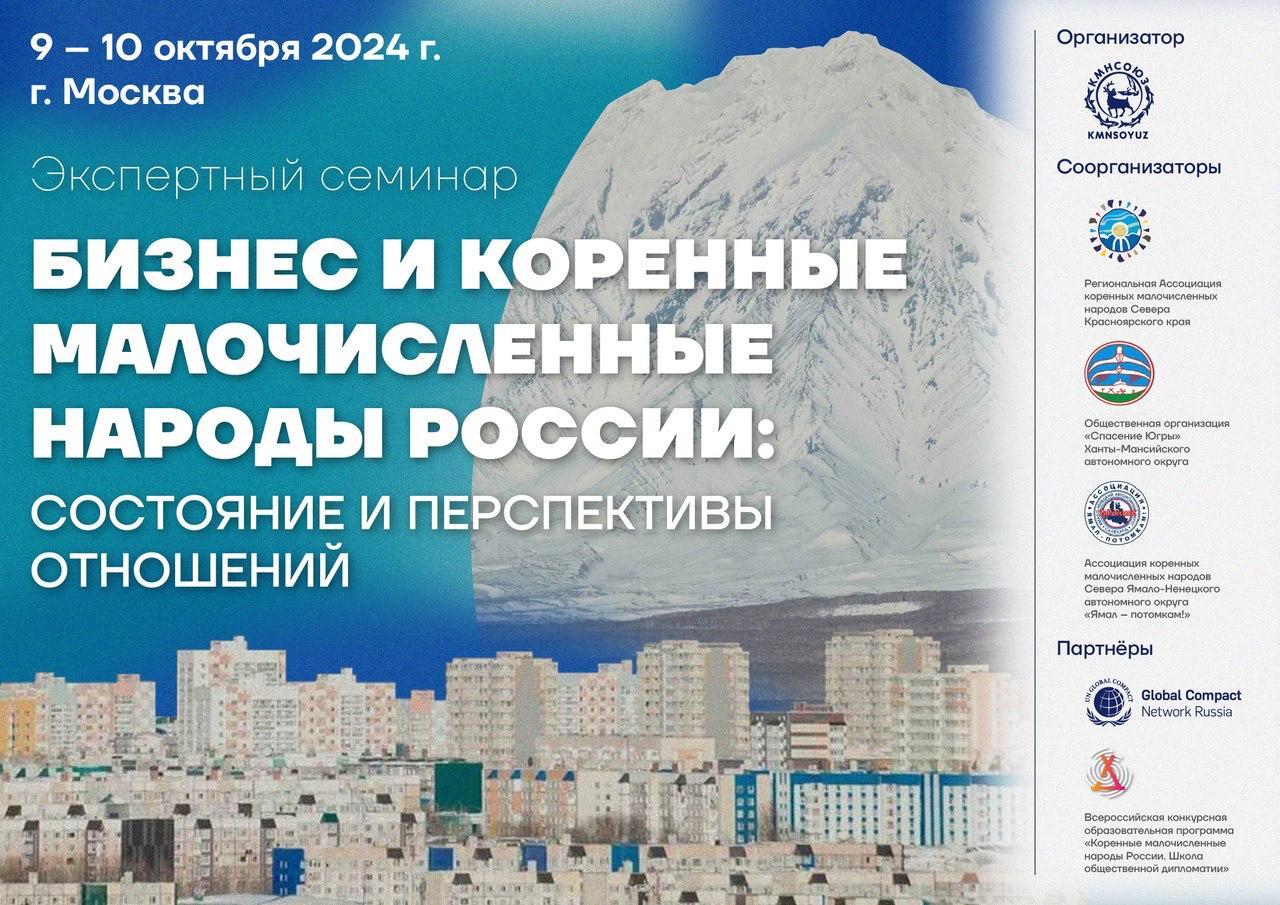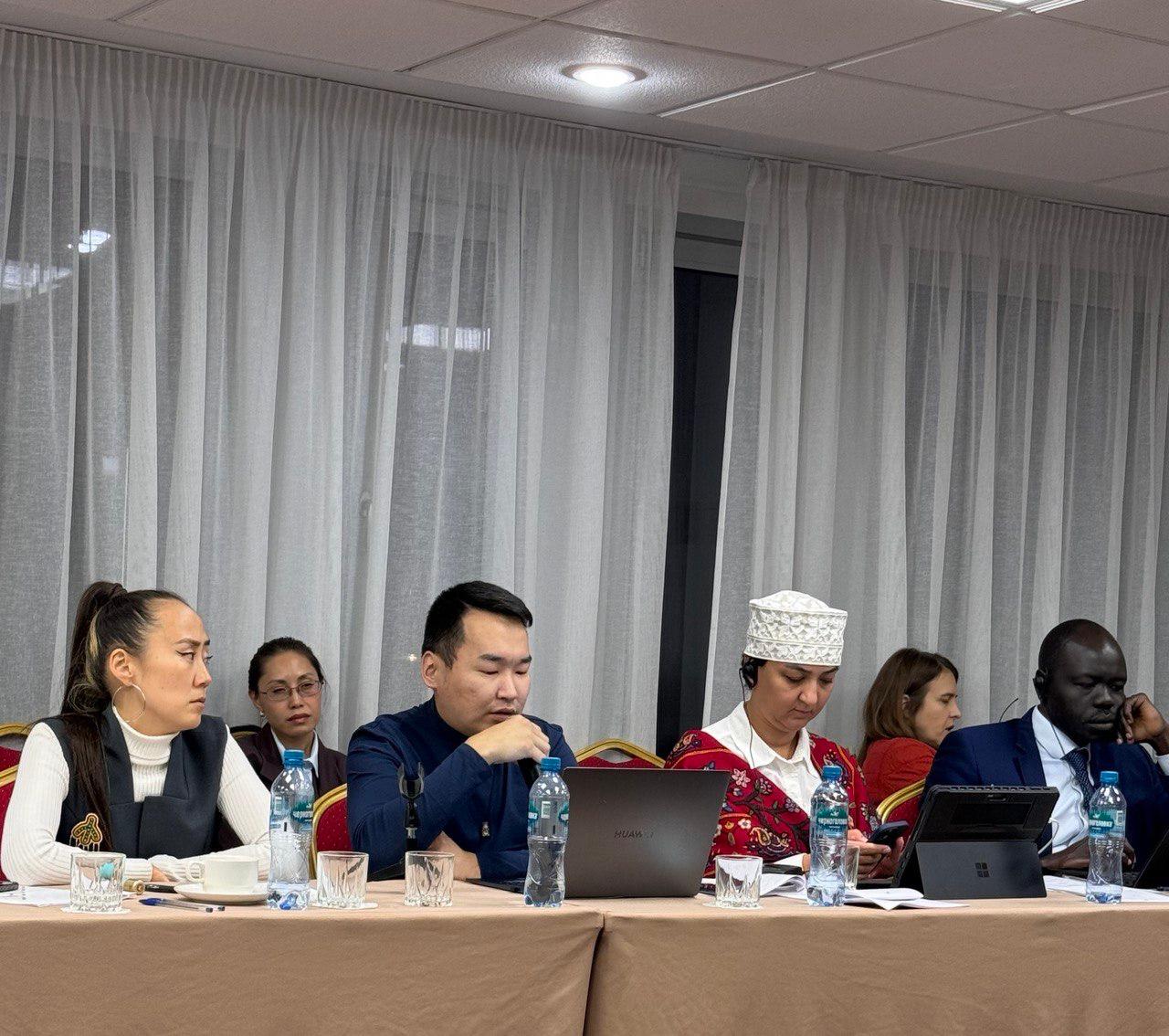
An expert seminar “Business and Indigenous Peoples of Russia: the State and Prospects of Relations” is being held in Moscow on October 9-10. It is dedicated to a number of key issues of interaction between companies and indigenous peoples of the Russian Federation.
The seminar is organized by the Interregional Public Organization “Association of Indigenous Peoples “SOYUZ” in partnership with the National Network of the UN Global Compact in Russia and the All-Russian educational program “Indigenous Peoples of Russia. School of Public Diplomacy”. Representatives of organizations of indigenous peoples of Russia, as well as international experts, are taking part in the seminar.
At the event, the participants will discuss a number of issues such as state regulation of relations between business and indigenous peoples; promoting sustainable development and fair distribution of benefits; will talk about successful cases of Russian companies in corporate interaction with indigenous peoples.

Previously, graduates of the program “Indigenous Peoples of Russia. School of Public Diplomacy” met with Norilsk Nickel Vice President Andrey Grachev and Director of the Department of Federal and Regional Programs Alexey Pinchuk, where they discussed the company's corporate policy, which includes the application of the principle of free, prior and informed consent (FPIC).
17 representatives of indigenous peoples of Russia graduated from the program. At the final stage, which took place in Moscow, future leaders of public opinion took part in lectures, thematic discussions, business games and practical classes. The educational project, organized by the Federal Agency for Nationalities, MGIMO and the Charitable Foundation for the Support of Indigenous Minorities with the support of Norilsk Nickel, helps students become leaders among their peoples, accumulate and express their point of view.
"We are interested in improving the professional competencies of public leaders who express the interests of their ethnic groups. Therefore, the company creates conditions for their personal development. We are confident that the educational project "School of Public Diplomacy" will contribute to the expansion of dialogue at international venues such as the UN, UNESCO and the Arctic Council," Grachev said.
Theodor Lisovoy, Managing Editor, Rough&Polished
